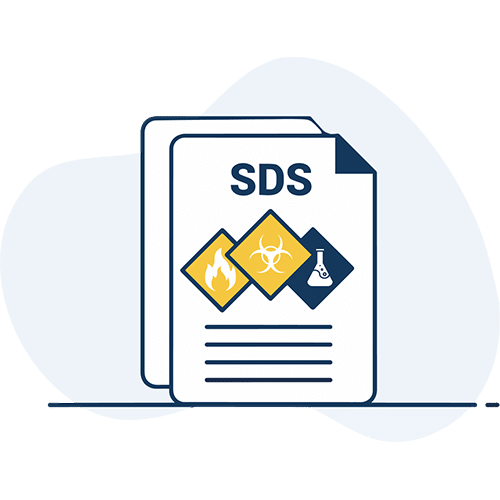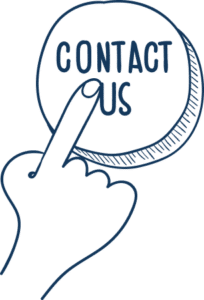Expert SDS Authoring
and Translation
Services
Ensure regulatory compliance and employee safety with our precise SDS authoring and translation solutions. We Author accurate, comprehensive Safety Data Sheets (SDS) personalized to your specific needs and Translate them with accuracy to reach your global workforce.
Expert SDS Authoring Solutions
Managing complex chemical safety regulations, complex hazard classifications, and constantly evolving compliance standards cause significant challenges. Inaccurate Safety Data Sheets (SDS) expose organizations to non-compliance risks, costly revisions, and compromised workforce safety.
Our SDS Authoring services facilitate the management of these complex chemical safety requirements, ensuring accurate hazard classification and labeling, comprehensive risk assessment and mitigation, and regulatory compliance with REACH, OSHA, and WHMIS standards. Utilizing advanced technical expertise in Classification, Labeling and Packaging (CLP), Globally Harmonized System (GHS), derivation of Safe Exposure Limits (DNEL/DMEL), and Toxicological and Eco-toxicological Evaluation, we deliver reliable SDS authoring solutions.
Understanding The Challenges of SDS Compliance
Handling the complex outlook of SDS compliance requires proficiency with both common and complex regulatory requirements. Frequent updates to chemical formulations and shifting mandates under OSHA’s Hazard Communication Standard (HCS 2012), REACH, and the Globally Harmonized System (GHS) necessitate that Safety Data Sheets remain current and fully compliant. Managing extensive chemical inventories involves precise classification and labeling in line with GHS criteria, as well as ensuring accessibility per 29 CFR 1910.1200. The complexities intensify when accommodating multilingual requirements and international variations, such as CLP Regulation in the EU and WHMIS 2015 in Canada.
Balancing the disclosure of hazardous substances while protecting Confidential Business Information (CBI) under trade secret provisions requires careful attention to regulatory nuances. To address these challenges, we use advanced SDS management solutions that integrate real-time regulatory updates, automate hazard communication, and support multilingual document generation. This comprehensive approach ensures our SDSs are accurate, accessible, and compliant across all jurisdictions, aligning with the thorough demands of global safety and regulatory standards.

Comprehensive SDS Content
Identification
- Product identifier
- Manufacturer / Supplier Information
- Emergency Contact Details
Hazard Identification
- Classification of hazards based on GHS criteria,
- including physical,
- health and environmental hazards,
- hazard pictograms,
- signal words and hazard statements
Composition/Information
on Ingredients
- Chemical composition
- including CAS numbers
- concentration ranges and ingredient identities.
First-Aid Measures
- Guidance on immediate first-aid measures for various exposure routes.
Firefighting Measures
- Suitable extinguishing media,
- specific hazards arising from the chemica
- protective equipment for firefighters
Accidental Release Measures
- Emergency procedures for spills
- leaks and releases
- including personal precautions,
- environmental protection and cleanup methods
Handling and Storage
- Precautions for safe handling,
- storage conditions
- incompatible materials.
Exposure Controls / Personal Protection
- Exposure limits,
- engineering controls,
- personal protective equipment (PPE) recommendations.
Physical and Chemical Properties
- Relevant physical and chemical characteristics,
- including appearance, odor, pH,
- melting/freezing point,
- boiling point, flammability,
- stability and reactivity
Stability and Reactivity
- Conditions to avoid, incompatibility
- hazardous decomposition products,
- potential hazardous reactions.
Toxicological Information
- Potential health effects,
- routes of exposure,
- symptoms and medical conditions aggravated by exposure.
Ecological Information
- Toxicity to aquatic and terrestrial organisms,
- persistence and degradability,
- bioaccumulation potential,
- mobility in soil.
Disposal Considerations
- Waste disposal methods, including
- recommendations for treatment,
- packaging
- storage prior to disposal.
Transport Information
- Potential health Proper shipping name,,
- hazard class,
- packing group,
- Environmental Hazards During transport.
Regulatory Information
- Relevant safety,
- Health and Environmental Regulations
Connect with our expert team
for a consultation today
We’ll guide you through the translation landscape to find the most cost-effective, time-efficient, and quality-assured chemical translation service for your unique needs.
Overcoming SDS Challenges
Effective Safety Data Sheet (SDS) management requires a comprehensive approach to overcome complexity, ensure compliance, and promote workplace safety. This involves standardizing formats, clarifying technical language, providing exhaustive hazard information, maintaining data accuracy, and ensuring accessibility for diverse users, while staying up-to-date with evolving regulations such as GHS, REACH, and OSHA.
Standardization and Harmonization
Establishing seamless compliance with Globally Harmonized System of Classification and Labeling of Chemicals (GHS) standards, specifically GHS Rev. 9 (ST/SG/AC.10/30/Rev.9), we implement consistent formatting, aligned with the United Nations’ recommended 16-section template, incorporating GHS codes for hazard classification (e.g., H200-H410), precautionary statements (e.g., P201-P502), and pictograms.
Clarifying Technical Complexity
Utilizing clear, concise language, we reduce ambiguities and technical jargon, making SDS content accessible to diverse stakeholders, including non-technical personnel. This includes explaining complex concepts such as:
- Classification criteria (e.g., explosive, flammable, oxidizing)
- Hazard categories (e.g., physical, health, environmental)
- Toxicological data (e.g., LD50, LC50)
Comprehensive Hazard Communication
Providing exhaustive information on chemical hazards, safety measures, and emergency procedures, our SDS solutions ensure users are well-informed and empowered to handle chemicals safely, including:
- GHS-defined hazard statements (e.g., H301-H373)
- Precautionary measures (e.g., P271-P308)
- First aid and emergency response procedures
Ensuring Data Currency and Accuracy
Through rigorous review and update processes, we maintain SDS accuracy, reflecting changes in regulations (e.g., REACH, OSHA), chemical composition, or safety protocols, incorporating updates from
- GHS Revision 9
- EU CLP Regulation (EC) No. 1272/2008
- OSHA HazCom 2012
Breaking Down Accessibility Challenges
Reaching to diverse user needs, our SDS solutions are available in multiple languages, formats (e.g., PDF, XML, CSV), and accessible via various channels (e.g., web, mobile, ERP integration), ensuring compliance with:
- Section 211 of the EU REACH Regulation
- OSHA's Electronic Access Rule (29 CFR 1910.1200(g))
Our SDS Authoring Process
Optimized for regulatory accuracy and efficiency, our SDS authoring process leverages specialized software, expert knowledge of GHS Rev. 9 (ST/SG/AC.10/30/Rev.9), CLP Regulation (EC) No. 1272/2008, and HazCom 2012 (29 CFR 1910.1200), and rigorous quality assurance protocols.
Confidentiality and
Non-Disclosure Agreement
To ensure the protection of sensitive client information, we:
- Execute non-disclosure agreements (NDAs) to safeguard client confidentiality
- Maintain secure data storage and transmission protocols
- Limit access to authorized personnel only
- Adhere to strict confidentiality guidelines throughout the SDS authoring process
Classification and Hazard Assessment
Application of GHS criteria to determine hazard categories, incorporating standardized test methods (OECD, ASTM) and expert judgment, in accordance with Annex I of the CLP Regulation.
Data Compilation and Validation
Assembly of comprehensive chemical datasets, including
- Chemical composition and property data (CAS, EC numbers)
- Toxicological information (LD50, LC50)
- Physicochemical properties (flash point, viscosity)
- Verification against trusted sources (ECHA, NTP)
SDS Development and Standardization
Construction of well-structured SDS documents adhering to:
- GHS Rev. 9, 16-section template
- CLP Annex I requirements
- OSHA HazCom 2012 standards
- ISO 11014 and ANSI Z400.1 guidelines
Regulatory Compliance and Monitoring
Ensuring adherence to
- GHS, CLP, OSHA, WHMIS, and REACH regulations
- Regulatory updates and amendments (e.g., GHS Rev. 9, EU CLP Regulation)
- Country-specific requirements and variances
Quality Assurance and Peer Review
Implementation of robust quality control measures, including:
- Expert review and validation
- Verification of SDS accuracy, consistency, and completeness
- Identification and resolution of potential discrepancies
By following this structured approach, we deliver SDS that not only meet regulatory mandates but also provide invaluable support for chemical safety management.
Expert SDS Translation Services
When precision, compliance, and speed matter most, Connect delivers reliable, cost-effective SDS translation services personalized to your global needs. We specialize in translating Safety Data Sheets into 150+ languages, ensuring they meet all regulatory standards while maintaining fast turnaround times (TAT) and unmatched accuracy. Our team of experts not only provides high-quality translations but also customizes them for regional regulations and industry-specific terminology, ensuring your documents are perfectly localized for each market. Partner with us to streamline compliance, reduce costs, and keep your global operations running smoothly.

Our SDS Translation Expertise
1
GHS Harmonization
Carefully implementing Globally Harmonized System (GHS) standards to ensure consistency and accuracy in hazard communication across diverse linguistic landscapes.
4
Hazard Classification
Accurate conveyance of hazard pictograms, signal words, hazard statements, and precautionary statements, ensuring consistent risk communication.
2
Chemical Terminology
Precision in translating complex chemical names, synonyms, and formulas, preserving the original intent.
5
Technical Writing
Mastery of technical writing to produce clear, concise, and unambiguous SDS translations.
3
Regulatory Compliance
In-depth knowledge of SDS regulations in various jurisdictions, including the EU’s CLP, US OSHA, and Canada’s WHMIS, to guarantee legal and operational compliance.
6
Quality Assurance
Rigorous quality control processes, including terminology management, translation memory utilization, and multi-level review, to deliver impeccable results.
1
GHS Harmonization
Carefully implementing Globally Harmonized System (GHS) standards to ensure consistency and accuracy in hazard communication across diverse linguistic landscapes.
2
Chemical Terminology
Precision in translating complex chemical names, synonyms, and formulas, preserving the original intent.
3
Regulatory Compliance
In-depth knowledge of SDS regulations in various jurisdictions, including the EU’s CLP, US OSHA, and Canada’s WHMIS, to guarantee legal and operational compliance.
4
Hazard Classification
Accurate conveyance of hazard pictograms, signal words, hazard statements, and precautionary statements, ensuring consistent risk communication.
5
Technical Writing
Mastery of technical writing to produce clear, concise, and unambiguous SDS translations.
6
Quality Assurance
Rigorous quality control processes, including terminology management, translation memory utilization, and multi-level review, to deliver impeccable results.
By combining linguistic proficiency with a deep understanding of chemical safety, we provide SDS translations that are not merely linguistic transformations but accurate and reliable safety communication tools.
100+ Languages, Affordable Prices
We offer translation services in over 100 languages, ensuring your content resonates with diverse audiences worldwide. Take advantage of our discounted rates for core languages like Spanish, Portuguese, German, French, Italian, Russian, Japanese, Chinese, Arabic, Hindi, and Korean. Contact us today for a custom quote tailored to your specific needs.
Types of SDS We Author and Translate
SDS By Chemical Type
Pure Substances
Individual chemical compounds with defined properties, molecular structures, and predictable behaviors.
UVCB Substances
Substances of Unknown or Variable Composition, Complex reaction products, Biological materials, and substances with uncertain or changing chemical structures.
Mixtures
Combinations of two or more substances, including solutions, suspensions, emulsions, and blends for various applications.
Polymers
Large molecules composed of repeating structural units, including thermoplastics, thermosets, and elastomers.
Preparations
Formulated products containing a base substance and additives, such as fillers, stabilizers, and carriers.
Intermediates
Chemicals used in manufacturing processes, such as reaction intermediates, precursors, and starting materials.
SDS By Industry
Chemicals
Industrial chemicals (pesticides, dyes), inorganic acids (sulfuric, nitric), organic bases, solvents (acetone, xylene), catalysts, and reagents.
Aerospace and Defense
Jet fuel, rocket propellants, hydraulic lubricants, specialized chemicals, and composite materials.
Pharmaceuticals
Prescription drugs, OTC medications, excipients (fillers, binders), and active pharmaceutical ingredients (APIs) for human and veterinary use.
Automotive
Gasoline, diesel fuel, engine lubricants, coatings (paint, primer), and brake fluids.
Oil and Gas
Crude oil, natural gas, drilling fluids (muds, completion fluids), additives, and specialty chemicals for upstream and downstream operations.
Manufacturing and Fabrication
Steel, aluminum, powder coatings, epoxy adhesives, and etching chemicals.
SDS By SDS Section
We offer specialized services for individual SDS sections, including
Hazard Classification
Expert assessment and assignment of hazard pictograms, signal words, and hazard statements.
Ecological Information
Assessment of environmental impacts and providing relevant data.
Exposure Controls
Determination of exposure limits, engineering controls, and personal protective equipment.
Transportation Information
Compiling transportation data according to international regulations (IMDG, IATA, ADR).
Toxicological Information
Evaluation and summarization of toxicological data and studies.
Physical and Chemical Properties
Description of chemical characteristics, including melting point, boiling point, and viscosity.
Our comprehensive approach ensures that we can handle any SDS, regardless of complexity or industry.
Our Safety Data Sheet
Translation Process
1
Document Analysis and
Quotation
- Thorough evaluation of source SDS documents to assess complexity, length, and language pairs.
- Accurate quote generation based on document analysis and client requirements.
4
Quality Assurance and
Review
- Rigorous review process by experienced linguists to ensure accuracy, consistency, and clarity.
- Verification of compliance with GHS regulations and target country requirements.
2
Project Initiation and
Team Assignment
- Dedicated project manager assigned to oversee the translation process.
- Selection of qualified translators with expertise in chemistry and the target language.
5
Formatting and Desktop
Publishing
- Preservation of original SDS format and layout in the translated document.
- Integration of translated content into the existing SDS template.
3
Translation and Terminology
Management
- Accurate translation of SDS content, adhering to GHS standards and regulatory requirements.
- Consistent use of terminology through translation memory and glossaries.
6
Delivery and Client
Satisfaction
- Timely delivery of translated SDS in the specified format.
- Ongoing support and assistance to address client queries or revisions.
1
Document Analysis and
Quotation
- Thorough evaluation of source SDS documents to assess complexity, length, and language pairs.
- Accurate quote generation based on document analysis and client requirements.
2
Project Initiation and
Team Assignment
- Dedicated project manager assigned to oversee the translation process.
- Selection of qualified translators with expertise in chemistry and the target language.
3
Translation and Terminology
Management
- Accurate translation of SDS content, adhering to GHS standards and regulatory requirements.
- Consistent use of terminology through translation memory and glossaries.
4
Quality Assurance and
Review
- Rigorous review process by experienced linguists to ensure accuracy, consistency, and clarity.
- Verification of compliance with GHS regulations and target country requirements.
5
Formatting and Desktop
Publishing
- Preservation of original SDS format and layout in the translated document.
- Integration of translated content into the existing SDS template.
6
Delivery and Client
Satisfaction
- Timely delivery of translated SDS in the specified format.
- Ongoing support and assistance to address client queries or revisions.
FAQs
Find answers to common questions about pharmaceutical translation services.
We cater to the diverse communication needs of life sciences companies by translating a wide range of documents, from cutting-edge research papers and clinical trial reports to regulatory submissions, patent applications, and marketing materials. Our expertise guarantees accurate and nuanced communication in over 100 languages.
Our translations are performed by expert linguists with specific expertise in life sciences. They possess deep knowledge of relevant terminology, current research, and regulatory requirements. Every document undergoes a rigorous quality assurance process
We offer translation services in over 100 languages, encompassing major global languages and specific regional dialects. This allows us to cater to the diverse needs of the life sciences industry, connecting you with researchers, regulators, and audiences worldwide.
We offer translation services in over 100 languages, encompassing major global languages and specific regional dialects. This allows us to cater to the diverse needs of the life sciences industry, connecting you with researchers, regulators, and audiences worldwide.
The timeline for a translation project depends on the complexity and volume of the documents. We work closely with you to establish a timeline that meets your needs, including accommodating urgent requests.
Yes, our team is well-versed in the regulatory requirements of the life sciences industry. We ensure that all translations meet the necessary standards for FDA, EMA, and other regulatory bodies, supporting your compliance efforts
We adhere to strict confidentiality and data protection protocols. All our translators sign non-disclosure agreements (NDAs), and we employ secure, encrypted systems for document handling. Your information remains confidential and protected throughout the entire translation process.
Our translation pricing considers the document’s complexity, target languages (with rarer options potentially having higher costs), and project urgency. Get a transparent, tailored quote by contacting us today and let’s discuss how we can support your global communication needs!
Just share some quick details with us! Tell us about your document type, target languages, volume, and ideal turnaround time. Our team will review your request and provide a custom quote tailored to your needs promptly.
Just share some quick details with us! Tell us about your document type, target languages, volume, and ideal turnaround time. Our team will review your request and provide a custom quote tailored to your needs promptly.
Still have questions?
Contact us for further assistance and detailed insight into our life
sciences translation services.
sciences translation services.
Contact Us
Ready to experience the Datagain difference?
Get in touch with us today.

Get a Quote
Upload a Doc and get an immediate Quote

